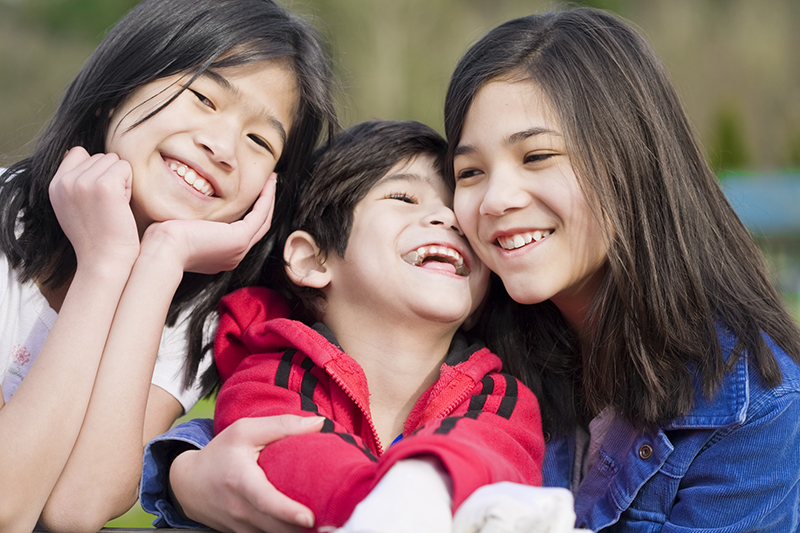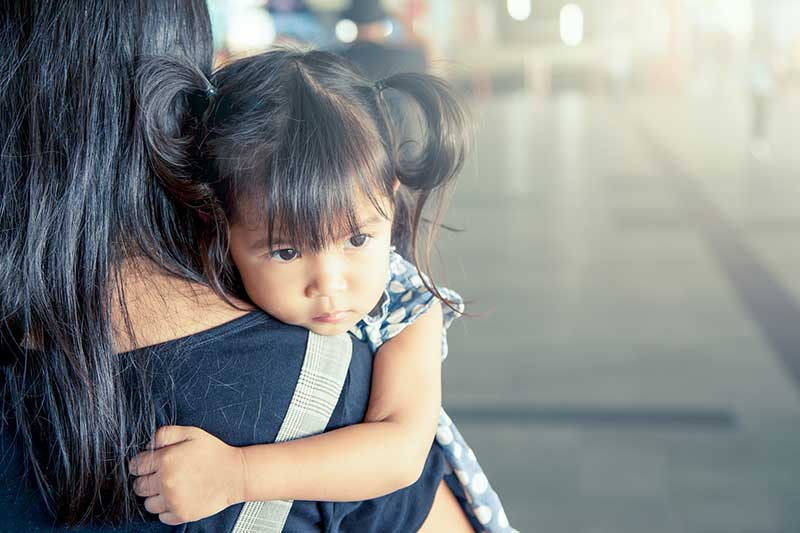Families For Life | Play and Friendship for Children with Disability

Making friends, playing and getting along with other children are good for all children, including your child with disability. You can support your child as he learns how to play and have friendships.
Why friendship and play are good for your child with disability
Play and friendships help your child with disability learn all kinds of skills and abilities. After all, children are fantastic teachers of other children. And playing with other children is great for helping your child feel good about herself.
Social-emotional development
Play and friendships help your child learn about sharing, cooperating, working out what other people are feeling and making friends with other children.
Friends are fun and can be caring too. Your child will get to know that he can rely on other children for support.
Communication
By being with other children, your child can learn new ways of talking, listening and communicating. She can hear and see how other children ‘use their words’ to say what they want and need when they’re together. And she can practise using her words too.
When your child feels more confident about communicating, she’s likely to get along better with other people. If she sometimes has problem behaviour, better communication skills might help.
Physical development
Friendships can encourage your child to join in with fun social physical activities like running, jumping, throwing a ball, climbing or building things.
Getting involved in physical play can improve your child’s muscle tone and gross motor skills, as well as her confidence.
If your child has a physical disability that makes it hard for her to be active, a physiotherapist or occupational therapist can help her find ways to get involved in games and sports with peers, and also to get some strength-building activities into daily life.
Practising play with your child with disability
To play well with others, children need to be able to share, take turns, listen and be sensitive to other children’s feelings. You can help your child practise these things in your everyday play and communication together.
Your child learns a lot from watching how you talk to other people and how you act when you’re around others. When you show your child how to behave, it’s called modelling. When you talk to people, you can model listening, sharing, compromising, seeing things from other people’s points of view and showing empathy. For example, you can say things like, ‘Yes, let’s do it that way’ or ‘I don’t understand what you mean’.
You can help your child learn to cooperate and share by playing board games or interactive games where you have to take turns.
If waiting for a turn is something your child needs to practise, you can use prompts that remind her to wait. For example, you could use a wait card or just put your hand up to remind her. You can cut down on the prompts – for example, use a raised finger instead of a raised hand – as your child gets better at waiting for turns.
You can read books with your child on play situations, or make Social Stories™ or drawings of what might happen in the playground or at child care or preschool. It can also help to talk with your child about how to deal with these situations.
Whenever you see your child sharing, taking turns or playing well in any way, you can give your child praise and encouragement. When you tell your child exactly what you liked about how he behaved, he’s more likely to behave that way again. For example, ‘It was nice that you gave the ball to Chen Kuo when it was his turn’.
Playing with other children
All children have to learn how to play and get along with others. There are a few things you can do to make playing with others easier for your child with disability.
Choosing toys and activities
If you’re having a playdate for your child, you can help things along by choosing toys and play things that all the children will enjoy. It’s also a good idea to have some activities that you know your child can do confidently. Children are much more likely to join in when they feel confident.
For younger children, choose activities that give them the choice of playing alone, alongside others or together. Some ideas include:
materials for painting and drawing
books, blocks and construction materials like Lego®
musical instruments
props for imaginative or dramatic play
outside play, like going for a walk
Setting up a play area
If you’re inviting children to your house to play, setting up a play area for them can help things go well. A spacious area that’s not too crowded works well, as do different spaces and activities so that children can either play together or alone.
Helping out if needed
Sometimes you might need to step in and help your child handle tricky situations. If you can give your child some words that help her understand her feelings, it might help. For example, ‘Mei Xuan has taken your toy. It looks like you’re feeling angry. It’s OK to feel angry. Let’s see how we can help’.
You can also teach your child some basic questions and sentences to help with play. For example, ‘I would like to play with that too’, ‘Can we try doing this together?’ or ‘I don’t like it when you do that’.
Mixing and matching
It’s great for your child to be with both older and younger children as well as children the same age, and children with and without disability. It can give him the chance to have a variety of experiences.
If play doesn’t go to plan
Things probably won’t always go according to plan. We don’t all make friends with everyone we meet, or get along with everyone we know. It’s normal to worry if your child is ignored or left out, or behaves badly.
If you can make playing with other children as fun and enjoyable as possible, your child will probably want to do it again.
Note that playing with other children takes physical and emotional energy, so your child might need to spend time alone after a big play session. As she gets better at playing with other children over time, she’ll naturally gain confidence.
Understanding play
The way your child plays and makes friends will change through his early years. He learns different things from play at different ages and stages, including creativity, flexibility and problem-solving. And the more chances your child has to play, the more he can learn about how to play.
Solitary play is when children play by themselves and don’t pay attention to what others are doing. This stage typically goes up to 15-17 months. It’s normal for it to last longer for children with disability.
Parallel play is when children play alongside each other and might use the same or similar toys as those around them. This stage typically starts at 18-24 months, but it can be later for children with disability.
Associative play is when children make and share things, give each other things, or join in with what other children are doing. This typically starts around three years, but it might be later for children with disability.
Cooperative play is when children join together to do activities and work together to finish something. It might also be making up rules or playing games with rules. This typically starts happening at 3-4 years, but it might be later for children with disability.
© raisingchildren.net.au, translated and adapted with permission
Explore more

DID YOU KNOW?
Many children and teenagers with autism spectrum disorder (ASD) stim and might keep stimming throughout their lives. They use stimming to manipulate their environment to produce stimulation, or because they have trouble with imagination and creativity and can’t think of other things to do, like pretend play.
READ MORE